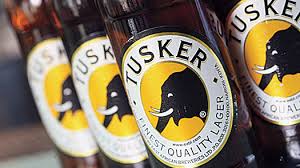
A United Nations team visiting Kenya has raised concern with the amount of alcohol consumed here.
The UN taskforce, who wrapped up week-long visit last week, noted that Kenyans consume 4.3 litres of pure alcohol per adult every year, much higher than the African average.
The amount is lower than the average European consumption of 12.5 litres of pure alcohol per year, only that Kenya’s is characterised by “heavy episodic drinking.”
However, the team was all praises for the country’s plans to battle non-communicable diseases like strokes, cancers, diabetes, and respiratory diseases.
NCDs account for 27 per cent of deaths suffered by Kenyans, equivalent to almost 100,000 people per year.
Kenya aims is to reduce the numbers of premature deaths from NCDs by 25 per cent by 2025, in line with WHO voluntary global target.
The Kenya mission was a first to Africa by the UN Interagency Taskforce for the Prevention and Control of NCDs.
Health Secretary James Macharia said President Uhuru was also committed to cutting NCD deaths. “This issue is being taken seriously by the highest levels of government, by the President,” he said.
The UN team noted tobacco remains the main risk factor for NCDs in Kenya, followed by physical inactivity, unhealthy diets and harmful use of alcohol.
“The NCD policy framework in Kenya is robust and there is strong leadership from the Ministry of Health,” said Dr Custodia Mandlhate, World Health Organisation representative to Kenya.
At least 26 per cent of Kenyan men smoke tobacco, and more than a quarter of youth (25%) are exposed to second hand tobacco smoke at home, WHO said.
The taskforce was established by the UN mid last year and placed under WHO’s leadership.
It is coordinating the activities of the relevant bodies to help realise the commitments in the 2011 UN Political Declaration on NCDs, in particular by implementing the WHO Global Action Plan for the prevention and control of noncommunicable diseases 2013-2020 and the 2014 UN outcome document on NCDs.
The team advised the government to place a stronger emphasis on protecting people from the exposure to highly processed foods and beverages loaded with fats, salt and sugar and raising awareness among the population.
Source-thestar.co.ke






